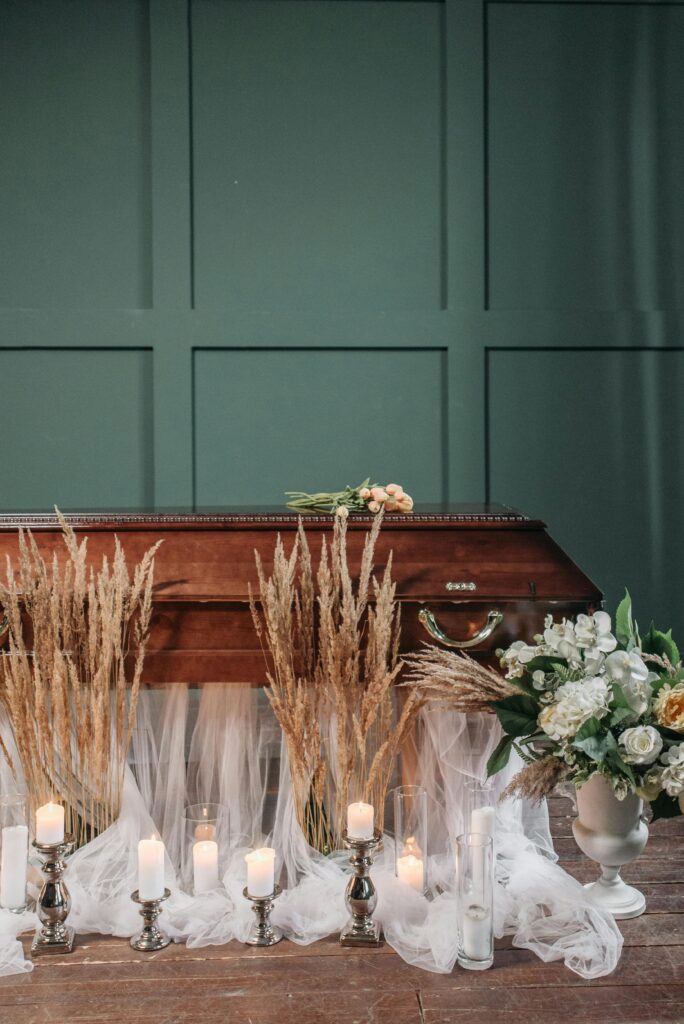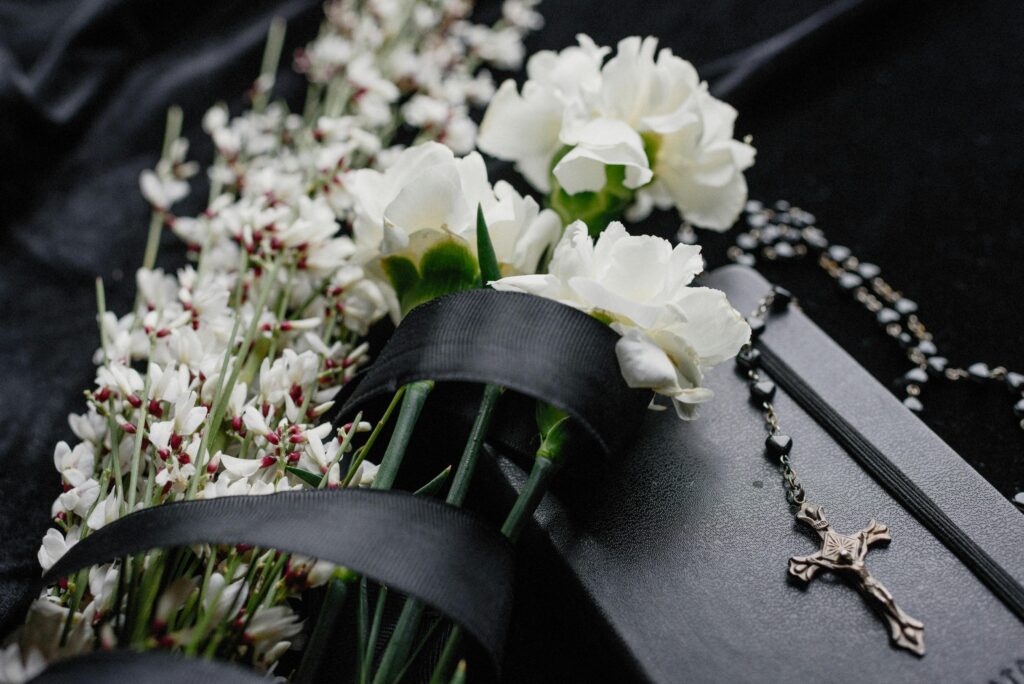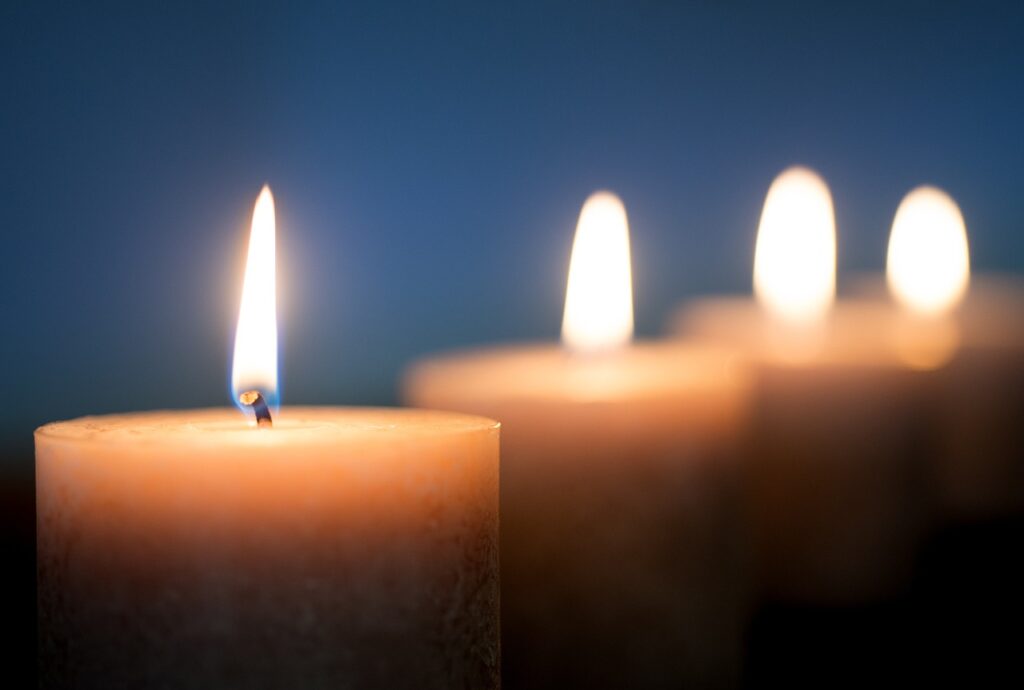Malaysia’s rich cultural diversity is reflected in its funeral traditions, which vary widely across the different ethnic and religious communities. Funerals in Malaysia are deeply rooted in honoring the deceased and providing comfort to the family, often incorporating rituals and customs that have been practiced for generations. Here’s an overview of some of the key funeral traditions observed by the major communities in Malaysia.
Chinese Funeral Traditions
Chinese funeral practices in Malaysia are influenced by Taoism, Buddhism, and Confucian principles. Traditions and rituals may vary, but they generally focus on honoring the deceased and ensuring a smooth transition into the afterlife.
- Wake and Viewing
The wake is often held in the home of the deceased or in a funeral parlor, and it can last for several days. Family and friends gather to pay their respects, and incense, paper offerings, and floral wreaths are common symbols of respect. Food offerings are sometimes placed near the casket to honor the deceased’s spirit. - Paper Offerings and Joss Sticks
Paper items representing money, houses, and even vehicles are burned as offerings, symbolizing a transfer of wealth and comfort for the deceased in the afterlife. Joss sticks are often lit continuously as a sign of reverence. - White and Black Clothing
Mourners traditionally wear white or black clothing to show respect, and close family members may don white headbands. Certain colors, like red, are avoided as they symbolize happiness. - Buddhist and Taoist Funeral Rites
A Buddhist monk or Taoist priest may conduct specific rituals, prayers, and chants during the ceremony. The funeral typically concludes with burial or cremation, followed by the family observing a mourning period and sometimes hosting a memorial service after 49 or 100 days.
Malay/Muslim Funeral Traditions
In Malaysia, the Malay community predominantly follows Islamic funeral traditions, which are centered around simplicity, modesty, and respect for the deceased.
- Preparation and Cleansing of the Body
The deceased’s body is washed (ghusl) by family members of the same gender, followed by wrapping it in a simple white shroud (kafan). This purification process is important in Islam and is conducted with the utmost respect and dignity. - Funeral Prayers (Salat al-Janazah)
Once the body is prepared, a special prayer called Salat al-Janazah is performed, typically at a mosque or in the home. The prayer is a communal act of respect and is led by an imam, with family and friends joining in. - Quick Burial
In Islam, the body is typically buried as soon as possible, usually within 24 hours. The burial involves placing the body in a grave facing Mecca, with the immediate family often present. Muslim funerals do not typically involve flowers or decorations, focusing instead on simplicity. - Mourning and Tahlil Prayers
Family and friends recite Tahlil (prayers for the deceased) for a period after the funeral, commonly on the third, seventh, and fortieth days. The focus is on prayer and remembrance rather than elaborate ceremonies.
Indian Hindu Funeral Traditions
The Malaysian Indian community, primarily Hindu, follows funeral rites that focus on the soul’s journey to the afterlife. Hindu funerals often feature rituals that promote the soul’s transition and ensure it reaches its next destination.
- Bathing and Dressing of the Body
The body is cleansed and dressed in simple attire, sometimes with sacred ash or kumkum placed on the forehead. Family members may chant prayers and apply holy water or sandalwood paste to honor the deceased. - Ceremonial Fire and Offerings
Fire is a significant symbol in Hinduism, representing purity and transformation. During the funeral rites, a small fire may be lit, and offerings like rice balls, flowers, and incense are placed near the deceased. - Cremation as the Preferred Practice
Cremation is the preferred method for Hindus, symbolizing the release of the soul from the physical body. The family typically gathers at a crematorium for the cremation, which is followed by a prayer ceremony. - Rituals Following Cremation
Family members often scatter the ashes in a river or the sea, as water bodies are considered sacred. Several days after the cremation, additional prayers and rituals are held to aid the soul’s journey.
Christian Funeral Traditions
Christian funeral traditions in Malaysia, observed mainly by Chinese and Indian communities, involve ceremonies that honor the deceased and provide comfort to family members. Christian funerals may be held in a church or a funeral parlor.
- Prayer Services and Hymns
A pastor or priest usually leads the service, offering prayers, scripture readings, and hymns. Friends and family members may also share memories and tributes during the service. - Viewing and Wake
A wake may be held before the service, allowing loved ones to pay their respects. Floral arrangements and photos of the deceased are common in Christian funerals, symbolizing remembrance and peace. - Burial or Cremation
Depending on the family’s preference, the deceased may be buried or cremated. A short graveside or committal service is often conducted at the burial site, where final prayers are recited. - Memorial Services and Mourning Period
Some families choose to hold a memorial service days or weeks after the funeral, providing an opportunity to reflect on the life of the deceased and to find solace in prayer and community support.
The Importance of Respecting Traditions
Funeral traditions in Malaysia are a vital way for families to connect with their heritage, honor their loved ones, and find closure during a difficult time. At Nirvana Funeral Service, we understand the importance of upholding these customs with sensitivity and respect. Our experienced team is here to guide you through each step, ensuring that every detail aligns with your cultural and religious preferences.
How We Can Help
Our funeral service packages are designed to accommodate the unique needs of Malaysian families, providing support for:
- Buddhist, Taoist, Freethinker, and Christian funeral arrangements
- Customized services that honor cultural traditions
- Compassionate guidance and assistance throughout the process
Contact us today for a free consultation to learn more about how we can support you in honoring your loved one’s life and legacy with dignity and respect.



